5 Post-Launch Mobile App Marketing Strategies to Skyrocket Downloads

5 Post-Launch Mobile App Marketing Strategies to Skyrocket Downloads
About 90% of time on mobile is spent in apps. Here are 5 marketing tactics for engaging your target audience, securing downloads, and growing a loyal following for your app.
Congratulations, your app is launched! Marketing your app is the next critical phase.
Do you:
- Launch and pray for success?
- Promote your app organically?
- Promote your app with paid media?
The correct answer is both promote your mobile app organically and through paid media.
Consider that 3 million apps are available today, and the average mobile user owns 36 apps.
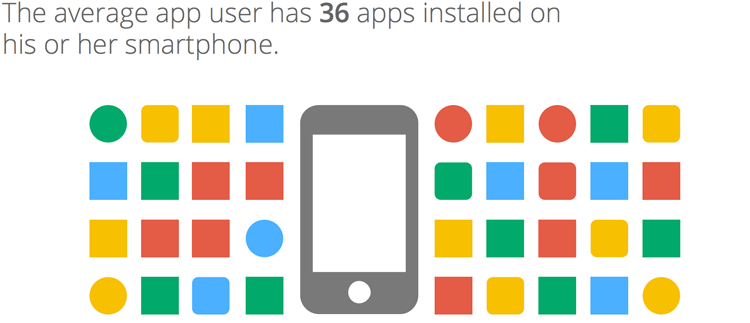
A coordinated effort will make you stand out – both in and outside of the app store.
Paid media amplifies your reach and helps you find new users.
But since user acquisition and retention are equally essential to an app’s success, you also need to sustain engagement and encourage word of mouth.
Organic promotion allows you to gain traction within your fan base by showing that your app’s value extends beyond the initial download.
To achieve steady user growth, use a comprehensive app marketing strategy.
Here are 5 tactics for securing your mobile app audience's loyalty:
- Promote with search ads
- Encourage user reviews
- Provide great customer service
- Submit to review sites
- Connect on social media
Haven't launched your app yet? Check out 10 pre-launch mobile app marketing strategies.
1. Promote With Search Ads
Search advertising will bring your app both exposure and downloads.
A study by Google and Ipsos found that 27% of people discover their apps through search engines.
Since search ads reach users at the moment of purchase intent, Google also saw that 50% of app downloads on mobile are driven by search ads.
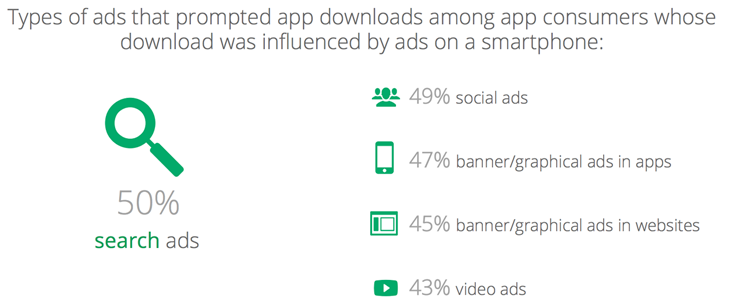
To get started on creating search ads, hop into Google Adwords and create an App Install campaign.
Next, set up conversion tracking so you can see how many downloads, installs, and first opens you get.
These metrics show you where to refine your ad copy and targeting for maximum impact and minimal cost.
2. Encourage User Reviews
Asking for reviews will help you grow the fan base needed to attract new app users.
According to the reporting platform BrightLocal, 88% of people trust reviews from other consumers as much as recommendations from personal contacts. Reviews benefit you by generating engagement, credibility, and loyalty for your app.
You can request reviews alongside the special offers and updates you deliver via in-app notifications. Remember that notifications are permission-based, so users will likely disable notifications or uninstall the app if they receive too many messages.
Gamification is the addition of game mechanics into your app marketing strategy. Injecting a bit of fun allows you to incentivize the review process for users and generate more feedback.
Install an app review plugin to streamline the feedback process. Then, create your own review pop-up and offer incentives, like Celebrity Guess does.
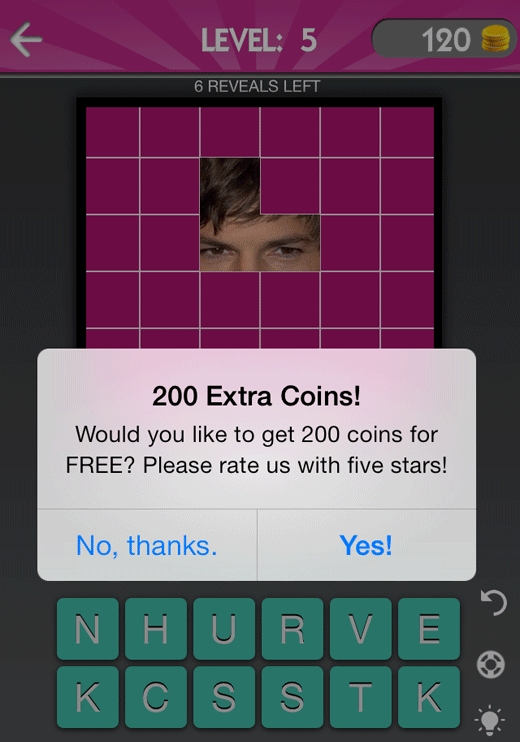
Good reviews are a result of good timing.
Let users enjoy the app. Then, prompt a review after a positive in-app experience.
3. Provide Great Customer Service
Stellar customer support is key to creating awesome word of mouth and fewer negative reviews.
When done effectively, customer support enables you to engage with users so you can foster feelings of loyalty and advocacy.
Make it easy for users to interact with you and voice their issues. Install a "send feedback" button that’s connected to:
- In-app chat feature
- Social media
Twitter and Facebook are both effective and inexpensive support channels when marketing your mobile app. Nearly 70% of customers have used social media for support – and 33% prefer it.
Hosting customer care on social media also showcases the likes, shares, and comments you get from being helpful. This positive social proof helps you drive downloads for your app.
Just be sure to answer quickly, as 60% of social users expect a response within the hour, according to Social Media Today.
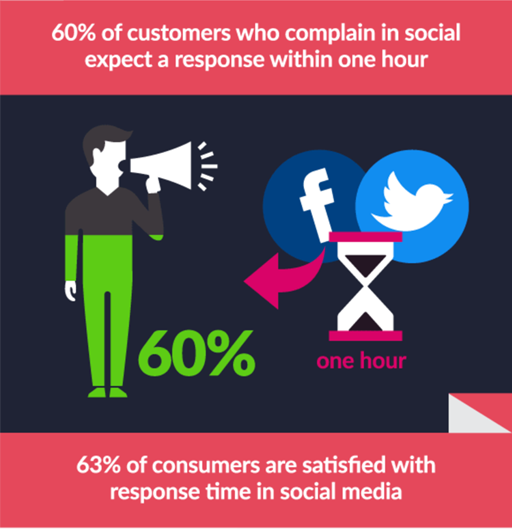
Replying quickly minimizes the risk of negative experiences so you can earn more five star reviews.
4. Submit to Review Sites
Whether from popular media sources like TechCrunch or app review sites, an expert’s assessment of your app is pure marketing gold.
Getting your app appraised by reviewers:
- Creates awareness within a loyal audience
- Increases your app store rankings (from backlinks that point to your app in the app store)
Though some charge for the service, app reviews sites are a user- and developer-trusted resource for unbiased reviews. This is a submission process – not a guarantee – so take care when volunteering your app.
When submitting your app to a reviews site, include your:
- Press release
- App pitch
- Promo code (for a demo)
- App video demo
If you're reaching out to a media site, research the authors beforehand to see what kinds of articles they write. Catering your pitch to the author’s style will ensure your submission gets accepted and receives the best write-up.
Here’s a list of review sites to help you generate credibility and awareness for your app.
5. Connect on Social Media
Since 81% of Americans are on social media, use your app marketing strategy to start a conversation. Rather than spread yourself thin, focus on the social media platforms that are popular with your target audience.
The strength of social media lies in your followers. A mix of fun and informative content, such as videos, blogs, and photos, will help you attract people aligned with your app’s brand.
Joining and sharing in relevant groups will also boost your app’s visibility and grab the attention of your specific audience. Consider using question and answer site Quora to position your app as a helpful resource – a great answer – to a pressing question.
As long as your answers are balanced with great content, users will tolerate your promotions.
To maximize your exposure, consider running paid ads on each platform. As reported by the blog MarketingLand, organic reach on Facebook fell by 52% in 2016.
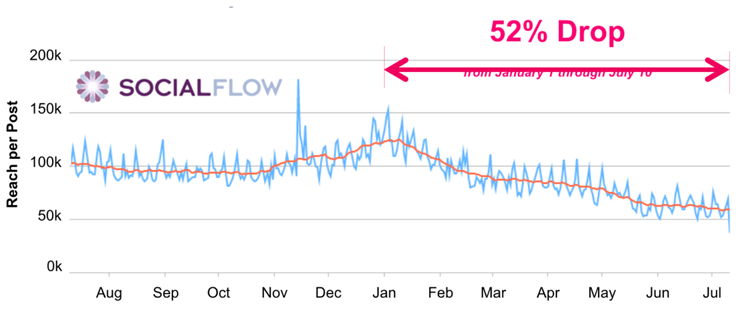
Running an App Install campaign on Facebook, Twitter, or Instagram can help you recover some of this lost visibility and surge downloads.
After Creation Comes Promotion
A successful post-launch app marketing strategy needs a proper balance of paid and organic promotion.
Let your app promotion strategy work toward both immediate downloads and lifelong users. Tactics that emphasize user-value will deliver the desired exposure and loyal fan base your app needs to grow.
